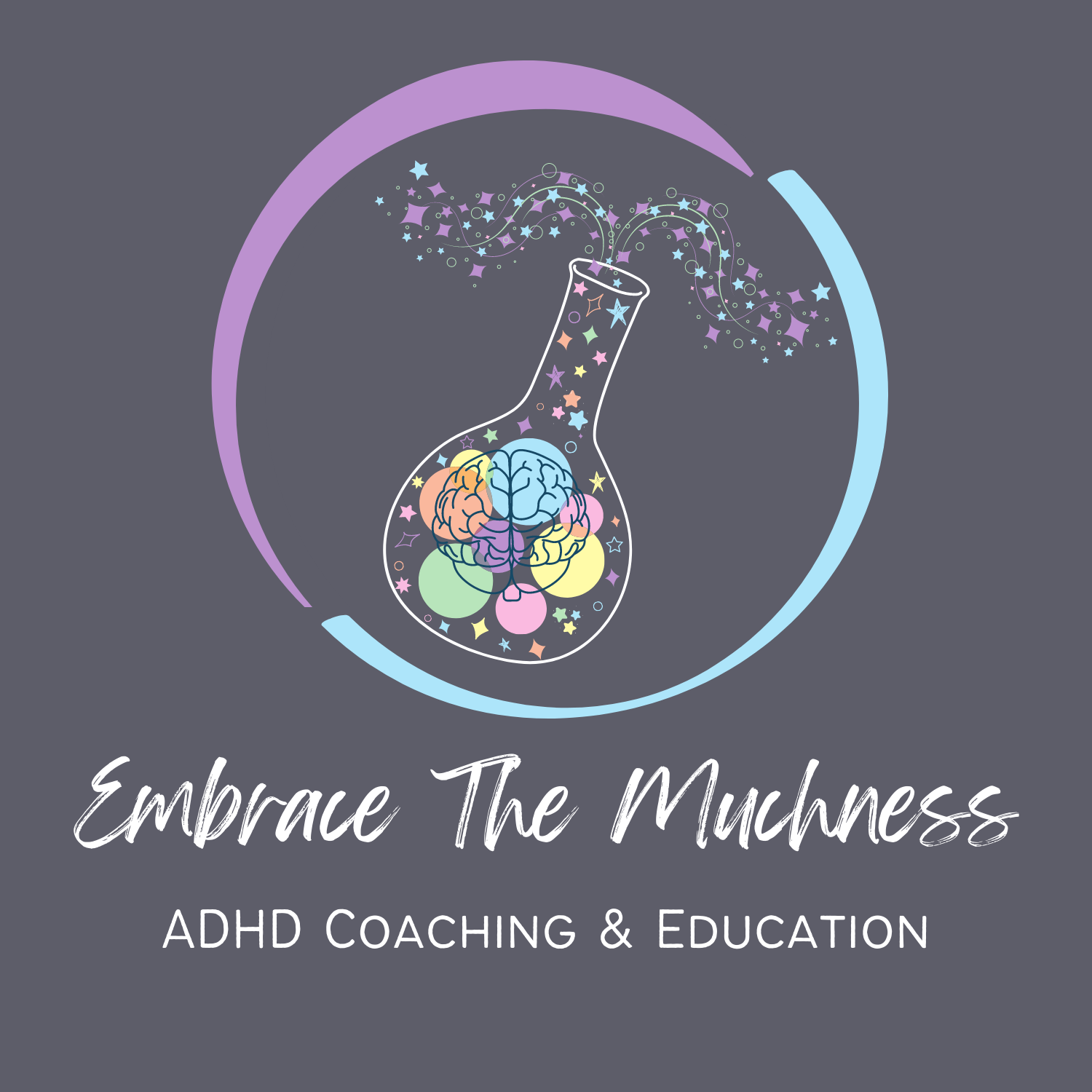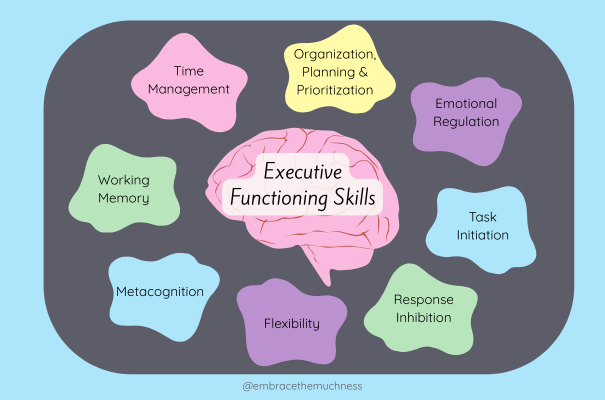What Are Executive Functioning Skills? Understanding Their Role in ADHD
When people talk about ADHD, the conversation often centers on focus, attention, and impulsivity. As an ADHDer, a parent of ADHD children, and a professional who supports many ADHDers, I see executive functioning skills as the area where challenges show up most. These are the cognitive processes that help us “execute” tasks. Think of them like the executive of a business for your brain: they support goal setting, monitoring progress, following through, analyzing, and adjusting.
For search clarity: you may also see these challenges called “executive dysfunction” online. I use more affirming language here.
This article is an introduction to executive functioning and the eight core skills. It also kicks off a series where I will take a closer look at each skill and share strategies for people who experience challenges in that area.
The Eight Executive Functioning Skills
1. Working memory
Holding information in mind long enough to use it. Think of a sticky note in your brain: remembering a phone number to dial or the next step in a recipe. Many ADHDers notice that information slips quickly, which can affect follow through and relationships.
2. Time management
Estimating how long tasks will take and planning how to use time. ADHDers often experience time blindness: not noticing how much time has passed, running late, or over and under estimating task length.
3. Organization, planning, and prioritization
Keeping track of materials, creating systems, planning ahead, and deciding what matters most. ADHD can look like cluttered spaces, half finished projects, and feeling unsure where to start.
4. Emotional regulation
Managing emotional responses so you can continue with what matters to you. ADHDers often feel emotions more intensely and may hear that reactions do not match the situation, which can make recovery tougher.
5. Task initiation
Beginning a task without unnecessary delay. Many ADHDers experience task paralysis, even with simple tasks. Often the barrier connects to another skill on this list, like time estimation or planning.
6. Response inhibition
Pausing before acting and choosing a response intentionally. This can look like interrupting, blurting, or acting quickly without considering the outcome.
7. Flexibility
Shifting when plans change or things do not go as expected. ADHDers may feel stuck when routines shift or when switching between different types of tasks.
8. Metacognition
Reflecting on your own thinking, noticing strengths and challenges, and adjusting. With multiple thought trains running, it can be hard to gauge capacity accurately in the moment.
Why this matters for ADHD
Everyone uses executive functioning skills daily, yet for ADHDers these skills can be inconsistent or consistently challenging. Fluctuating capacity is common. Understanding executive functioning gives language to what you are experiencing and reminds us this is not about laziness or willpower. Some skills can improve with knowledge and support. For others, accommodations and practical strategies reduce friction so daily life feels more workable.
A note about values
When we talk about executive functioning, I want to name a few things:
Many societal expectations assume everyone can do these skills with ease. That reflects ableism rather than an understanding that bodies and brains vary.
In cultures shaped by capitalism, time is equated with money. People who do not work in the most “efficient” way can face shame and judgment.
There are many valued skills outside of executive functioning in other cultural contexts: caretaking, presence, creativity, storytelling, entertaining, and more. Your strengths bring value even if executive functioning is challenging.
What’s next
This post is the starting point. In upcoming posts, I will explore each executive functioning skill in more detail: what it looks like, how it shows up in daily life with ADHD, and a few strategies you can try when that skill feels challenging. Step by step, my hope is that you will feel more equipped to recognize your challenge areas, experiment with supports, and care for your ADHD in a world that often expects these skills to come easily.
Bobbi-Jo Molokken
ADHD Coach & Educator: Embrace the Muchness
*Want more support around executive functioning? I currently offer individual ADHD coaching to help you identify your own patterns and build strategies that work for your brain.
*Check back soon: I’ll be releasing a new resource called the Inner Equilibrium Audit, designed to help you track energy, tasks, and rhythms in a clear and supportive way.

